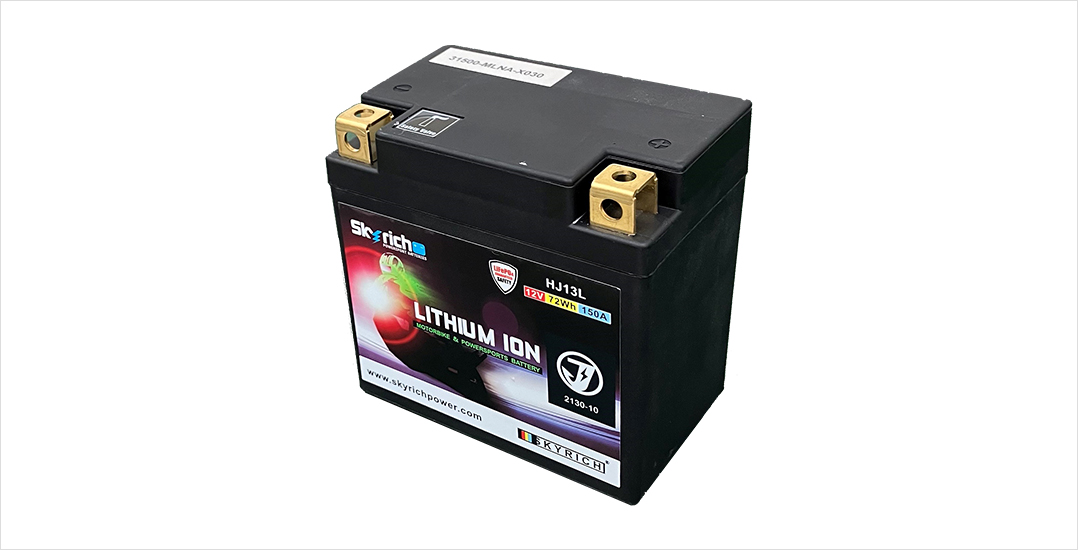A friend is interested in lithium-ion batteries.


First and foremost, they are smaller and lighter than conventional lead-acid batteries.
That's less than half the weight of the one for the Africa Twin, more than 2kg.


Lightness is justice for motorcycle. What else?

They can be charged faster than lead-acid batteries, so even after a short period of inactivity, they can be fully charged after a short ride.

Also, the self-discharge level is quite low.
So as long as the battery cables are disconnected, even if the motorcycle is parked in a garage for a long period of time without running the engine, the battery capacity will not be reduced much and it is unlikely that the engine will be unable to start.
This is particularly helpful for motorcycle that are not ridden every day, such as larger motorcycles.



Also, the voltage does not drop easily even when the battery capacity is low.
So you can start the engine much more vigorously even if you run the starter motor continuously.


Really?
Does the battery only serve to turn the starter motor?

Surprisingly, people don't seem to know that it's not the battery that supplies electricity to the headlights and other electrical components while the vehicle is running.
But the alternator generates its own power from the engine's rotation.

The battery is used to power the starter motor when the engine is not running, i.e. when the alternator is not generating power.

Incidentally, the battery itself is charged by the surplus electricity generated by the alternator while the vehicle is running.


I see!
I would buy a motorcycle equipped with a lithium-ion battery if it were lighter and more powerful.
Is there anything I should be aware of?

Unlike lead-acid batteries, lithium-ion batteries contain an electronic component called a battery management unit (BMU), so rough handling is strictly prohibited.


Be specific.

Short-circuiting is strictly forbidden, even for a brief moment.
Actually, with lead-acid batteries, a momentary short circuit will only cause a slight loss of performance.
But with lithium-ion batteries, the FUSE element mounted in the BMU can burn out, rendering the battery unusable.

Why are lithium-ion batteries so nervous?

A lithium-ion battery has several cells connected in series inside, but these cells need to be charged evenly to be fully charged.
So the BMU is there to closely control the amount of charge between cells.

Overvoltages and overcurrents during the charging process can damage the electrode materials of the cells.
So FUSE elements are implemented in the BMU to prevent them.


If the FUSE element is left off, you'll never be able to use the battery again, so the genuine Honda lithium-ion battery can be revived.
If you encounter any problems, such as the lithium-ion battery not working, consult your dealer.

Just hearing the word 'electronic components' sounds really difficult...

Never use a pulse charger to revive a lead-acid battery that is at the end of its life, as it may burn out the entire BMU.

Lithium-ion batteries have their own or recommended charger, so use the one prescribed to charge them.

If you ride frequently and keep the battery cable disconnected when you're not riding, you'll have less chance of going to the trouble of using a charger to charge the battery.

I would also buy a new motorcycle with a lithium-ion battery.
Thank you!

I've recently heard about lithium-ion batteries for motorcycle, what are their advantages over conventional lead-acid batteries?